- Treating Coccidiosis in Animals: A Guide for Pet Owners
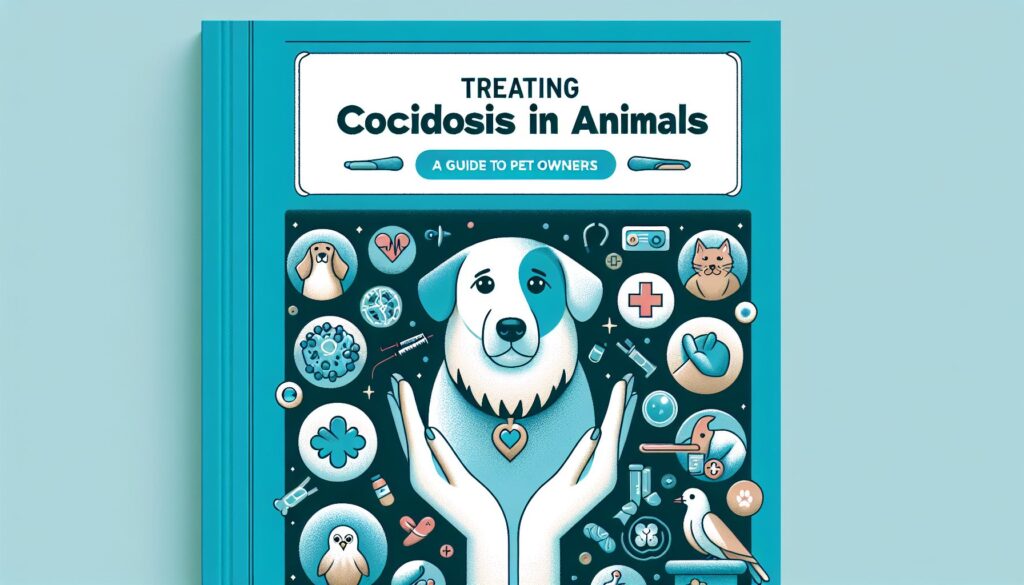
As pet owners, we always want what’s best for our furry friends. Sometimes, however, our beloved animals can fall ill with certain conditions that require prompt treatment. One such disease that commonly affects livestock such as goats is coccidiosis. If you suspect your animal may have coccidiosis, it’s important to act quickly and seek the appropriate treatment. In this blog post, we will discuss coccidiosis treatment for animals, with a focus on using toltrazuril 5% Liquid solution, a powerful medication that can help eliminate the parasite responsible for the disease.
Understanding Coccidiosis
Coccidiosis is a parasitic disease caused by coccidian protozoa that can affect a wide range of animals, including goats. The most common symptoms of coccidiosis include diarrhea, dehydration, weight loss, and poor coat condition. Left untreated, coccidiosis can be fatal to livestock animals such as goats, making proper diagnosis and treatment essential.
Using Toltrazuril 5% Liquid Solution
One of the most effective treatments for coccidiosis in animals is toltrazuril 5% Liquid solution. This medication works by targeting the coccidian protozoa responsible for the disease and eliminating them from the animal’s system. Toltrazuril is easy to administer and is generally well-tolerated by animals, making it a popular choice among pet owners and veterinarians alike.
To treat coccidiosis in your animal using toltrazuril 5% Liquid solution, simply follow the dosage instructions provided by your veterinarian. Typically, the medication is given orally for a set period of time, usually ranging from a few days to a week. It’s important to finish the full course of treatment, even if your animal starts to show signs of improvement, to ensure that the infection is completely eradicated.
Other Treatment Options
In addition to toltrazuril 5% Liquid solution, there are other medications available that can help treat coccidiosis in animals. Baycox, for example, is another popular treatment option that can be used to eliminate the parasite responsible for the disease. Your veterinarian can help determine the best course of treatment for your animal based on their specific condition and medical history.
Another important aspect of treating coccidiosis in animals is managing their environment to reduce the risk of reinfection. Keeping living areas clean and hygienic, providing access to fresh water and nutritious food, and practicing good animal husbandry can all help prevent the spread of coccidiosis and other parasitic diseases among livestock animals.
Conclusion
Coccidiosis is a serious condition that can affect a wide range of animals, including goats. If you suspect your animal may have coccidiosis, it’s important to seek prompt treatment to help alleviate their symptoms and prevent any potential complications. Toltrazuril 5% Liquid solution is a highly effective medication that can help eliminate the parasite responsible for coccidiosis and restore your animal’s health.
Remember to always consult with your veterinarian before starting any treatment for coccidiosis or any other medical condition in your animals. By working closely with your veterinarian and following their recommendations, you can help ensure the best possible outcome for your beloved pet.
- Treating Coccidiosis in Animals: A Comprehensive Guide
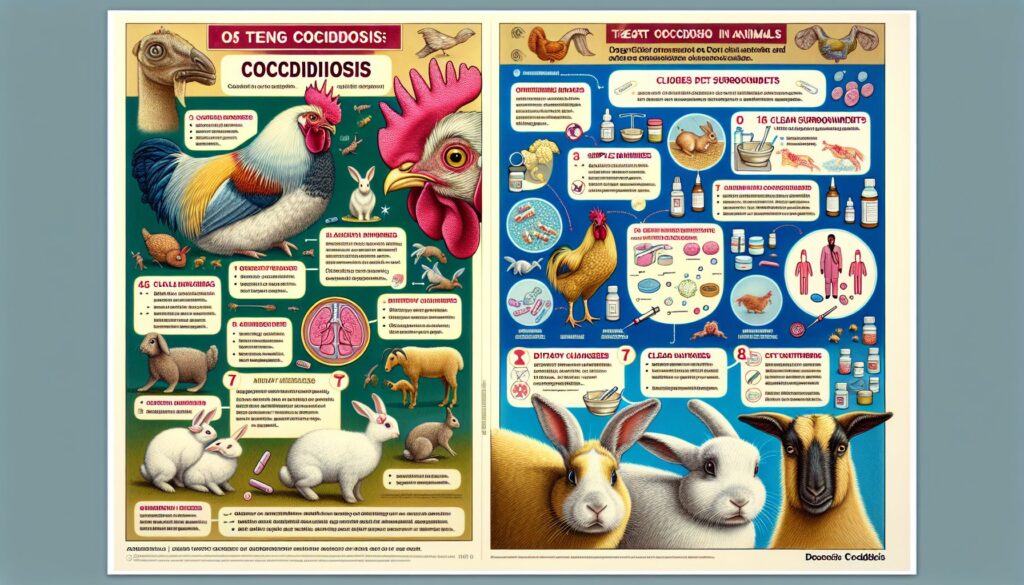
Coccidiosis is a common and potentially serious disease that affects many animals, including goats. It is caused by a type of parasite known as coccidia, which can thrive in moist environments and quickly spread from one animal to another. If left untreated, coccidiosis can lead to severe diarrhea, dehydration, and even death in extreme cases. However, with the right treatment and care, animals affected by coccidiosis can make a full recovery.
Understanding Coccidiosis
Coccidiosis is a parasitic disease that primarily affects the intestinal tract of animals. It is caused by coccidia, which are single-celled organisms that multiply rapidly within the host’s intestines. When animals ingest coccidia through contaminated food, water, or soil, the parasites can take hold and cause damage to the intestinal lining. This damage leads to symptoms such as diarrhea, weight loss, and lethargy.
Symptoms of Coccidiosis
The symptoms of coccidiosis can vary depending on the severity of the infection and the type of animal affected. Common symptoms include:
- Diarrhea, which may contain blood or mucus
- Dehydration
- Weight loss
- Lethargy
- Poor appetite
- Rough coat
If you notice any of these symptoms in your animals, it is important to consult a veterinarian for a proper diagnosis and treatment plan.
Treating Coccidiosis with Toltrazuril 5% Liquid Solution
Toltrazuril 5% Liquid Solution is a highly effective treatment for coccidiosis in animals. This medication works by targeting and killing the coccidia parasites, helping to stop the infection in its tracks. Administered orally, Toltrazuril is easy to use and generally well-tolerated by most animals.
To treat coccidiosis with Toltrazuril, follow the dosage instructions provided on the product label or as directed by your veterinarian. It is important to complete the full course of treatment to ensure that all parasites are eliminated from the animal’s system. Additionally, be sure to provide plenty of clean water and a balanced diet to support your animal’s recovery.
Other Treatment Options
In addition to Toltrazuril, there are other medications and treatments that can help combat coccidiosis in animals. Baycox is another commonly used medication for the treatment of coccidiosis in goats and other livestock. This medication works by disrupting the parasites’ ability to multiply, ultimately leading to their death.
In severe cases of coccidiosis, supportive care may also be necessary. This may include fluid therapy to combat dehydration, as well as the administration of vitamins and minerals to help the animal regain its strength and energy.
Preventing Coccidiosis
While treating coccidiosis is important, prevention is always the best approach. To help prevent coccidiosis in your animals, follow these tips:
- Keep living areas clean and dry
- Provide fresh, clean water at all times
- Practice good hygiene when handling animals
- Monitor animals for signs of illness and seek veterinary care promptly
By taking these preventive measures, you can help reduce the risk of coccidiosis in your animals and keep them healthy and happy.
Conclusion
Coccidiosis is a common and potentially serious disease that affects many animals, including goats. By understanding the symptoms of coccidiosis, seeking prompt veterinary care, and using effective treatments such as Toltrazuril 5% Liquid Solution, you can help your animals recover from this parasitic infection. Remember to follow dosage instructions carefully, provide supportive care as needed, and take steps to prevent future infections. With proper care and treatment, animals affected by coccidiosis can make a full recovery and return to their happy, healthy selves.
- Treating Coccidiosis in Animals: A Comprehensive Guide for Female Pet Owners
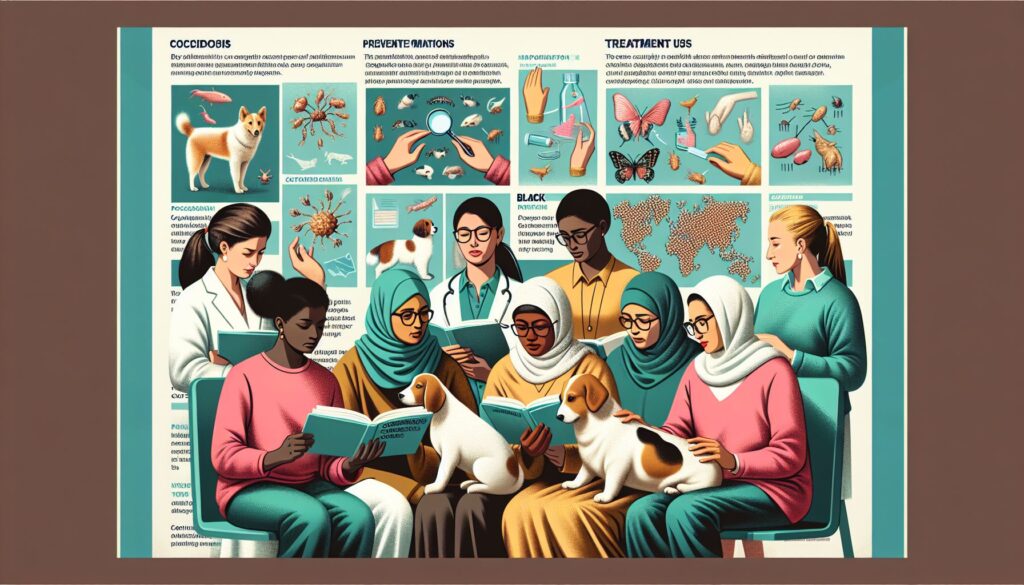
As pet owners, we always strive to keep our furry friends healthy and happy. However, sometimes they can fall ill with conditions such as coccidiosis, which can be not only uncomfortable for them but also worrying for us. In this article, we will explore coccidiosis treatment options for animals, focusing on using toltrazuril 5% liquid solution as a key component in the treatment regimen.
What is Coccidiosis?
Coccidiosis is a common parasitic disease that affects a wide range of animals, including goats, cattle, and even household pets. It is caused by single-celled parasites known as coccidia, which multiply in the animal’s intestines and can cause symptoms such as diarrhea, weight loss, and dehydration. If left untreated, coccidiosis can be life-threatening for the infected animal.
Treating Coccidiosis with Toltrazuril 5% Liquid Solution
One of the most effective treatments for coccidiosis in animals is toltrazuril 5% liquid solution. This medication works by disrupting the reproductive cycle of the coccidia parasites, ultimately leading to their death. Toltrazuril is safe to use in a wide range of animals, including goats, and is available in a convenient 240ml bottle for easy administration.
When treating coccidiosis with toltrazuril, it is important to follow the instructions provided by your veterinarian carefully. Typically, the medication is given orally for a set period of time, depending on the severity of the infection. It is important to complete the full course of treatment to ensure that all the coccidia parasites are eliminated from the animal’s system.
Additional Treatment Options
While toltrazuril is a highly effective treatment for coccidiosis, some cases may require additional support. In severe cases of coccidiosis, where the animal is experiencing dehydration or other complications, intravenous fluids may be necessary to help support their recovery. Your veterinarian may also recommend using other medications such as EPM or Baycox to address specific symptoms or provide additional protection against coccidia.
In addition to medication, it is important to provide supportive care for animals suffering from coccidiosis. This may include ensuring they have access to clean water at all times, as well as providing a balanced diet to support their recovery. It is also important to keep affected animals isolated from healthy animals to prevent the spread of infection.
Preventing Coccidiosis in Animals
Prevention is always better than cure when it comes to coccidiosis. To help reduce the risk of infection in your animals, there are several steps you can take. Firstly, ensure that their living conditions are clean and sanitary, as coccidia parasites thrive in damp and dirty environments. Regularly cleaning and disinfecting their living area can help to reduce the likelihood of infection.
Additionally, it is important to practice good hygiene when handling animals, especially when working with multiple species. Wash your hands thoroughly after handling different animals, and avoid cross-contamination between healthy and infected animals. By taking these preventive measures, you can help to protect your animals from coccidiosis and other common diseases.
Conclusion
Coccidiosis is a common and potentially serious parasitic disease that can affect a wide range of animals, including goats and household pets. By understanding the symptoms and treatment options for coccidiosis, you can help to support your animals’ health and well-being. Using toltrazuril 5% liquid solution as part of a comprehensive treatment plan, along with additional supportive care and preventive measures, can help your furry friends recover from coccidiosis and prevent future infections. Remember, always consult with your veterinarian for personalized treatment recommendations for your animals.
- Taking Care of Your Animal Friends: Coccidosis Treatment and Prevention
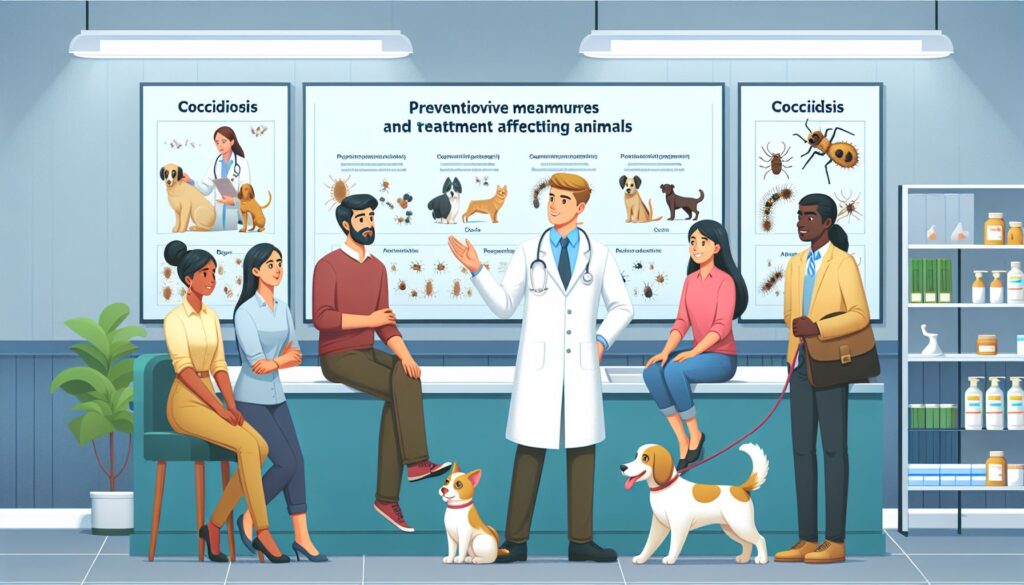
As a responsible pet owner or livestock farmer, one of the most important aspects of caring for your animals is ensuring their health and well-being. One common ailment that can affect a variety of animals, from goats to chickens, is coccidosis. This parasitic disease is caused by the coccidian protozoa and can lead to symptoms such as diarrhea, weight loss, and even death if left untreated. In this blog post, we will discuss the importance of coccidosis treatment and prevention, as well as the benefits of using toltrazuril 5% liquid solution as a trusted medication for your animals.
Understanding Coccidosis
Coccidiosis is a common gastrointestinal disease caused by the coccidian protozoa. These parasites can infect a wide range of animals, including goats, chickens, and other livestock. The most common symptoms of coccidiosis include diarrhea, dehydration, weight loss, and poor growth. In severe cases, coccidiosis can be fatal, especially in young or immunocompromised animals.
Treatment Options
When it comes to treating coccidiosis in animals, there are a few options available. One popular choice among veterinarians and livestock farmers is toltrazuril 5% liquid solution. This medication is effective against a wide range of coccidian species and is easy to administer to animals. Simply mix the recommended dose of toltrazuril with your animal’s water supply or food, and watch as it helps to eliminate the coccidian parasites from their system.
Benefits of Toltrazuril 5% Liquid Solution
Toltrazuril 5% liquid solution has been shown to be an effective and safe treatment for coccidiosis in a variety of animals. One of the primary benefits of using toltrazuril is its high success rate in eliminating coccidian parasites from the animal’s system. This can lead to a faster recovery time and a lower risk of complications from coccidiosis.
Additionally, toltrazuril is easy to administer, making it a convenient option for busy livestock farmers or pet owners. With a 240ml bottle of toltrazuril 5% liquid solution, you can treat multiple animals and ensure that they are protected from the harmful effects of coccidiosis.
Prevention is Key
While treating coccidiosis is important, prevention is always the best course of action when it comes to keeping your animals healthy. To help prevent coccidiosis in your livestock or pets, be sure to keep their living areas clean and dry, provide clean water and food, and monitor their overall health regularly.
In addition to good hygiene practices, you may also consider using toltrazuril as a preventive measure. By administering a low dose of toltrazuril to your animals on a regular basis, you can help to reduce their risk of developing coccidiosis and keep them healthy and happy.
Conclusion
Coccidiosis is a serious disease that can affect a variety of animals, from goats to chickens. By understanding the importance of coccidosis treatment and prevention, you can ensure the health and well-being of your beloved animals. With the use of toltrazuril 5% liquid solution, you can effectively treat coccidiosis and protect your animals from its harmful effects. Remember to consult with your veterinarian before starting any treatment regimen and always follow their recommendations for the best results. Your animals will thank you for keeping them healthy and happy!
- Treating Coccidiosis in Animals: A Guide to Toltrazuril 5% Liquid Solution
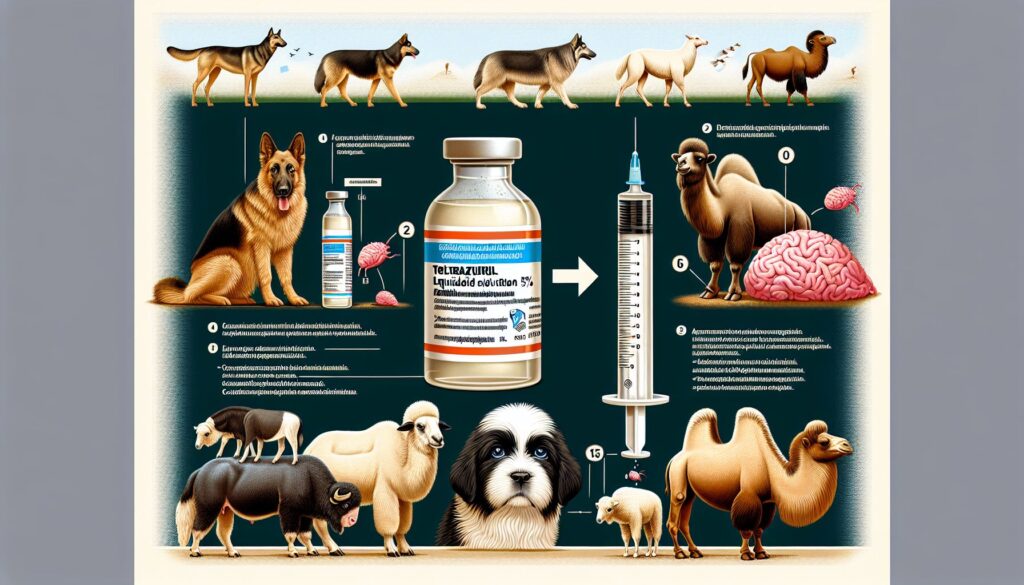
Coccidiosis is a common and sometimes deadly disease that affects many animals, including goats. If left untreated, it can quickly spread throughout a herd and wreak havoc on their health. Fortunately, there are effective treatments available, such as toltrazuril 5% liquid solution.
Understanding Coccidiosis
Before we dive into the treatment options, let’s first understand what coccidiosis is. This disease is caused by a protozoan parasite known as Eimeria spp. The parasite typically infects the intestines of animals, causing severe damage to the lining and leading to symptoms such as diarrhea, weight loss, and dehydration.
Coccidiosis can be especially challenging to deal with in goats, as they are particularly susceptible to the disease. This is why it’s essential to have a treatment plan in place to combat coccidiosis and protect the health of your animals.
Introducing Toltrazuril 5% Liquid Solution
One of the most effective treatments for coccidiosis in animals, including goats, is toltrazuril 5% liquid solution. This medication is specifically designed to target and eliminate the Eimeria parasite, helping to alleviate the symptoms of coccidiosis and restoring your animals’ health.
Toltrazuril works by interfering with the parasite’s ability to reproduce and spread, eventually leading to its death. This makes it an excellent choice for treating coccidiosis and preventing further outbreaks in your herd.
Administration and Dosage
When using toltrazuril 5% liquid solution, it’s essential to follow the proper administration and dosage guidelines. The medication is typically given orally, either by mixing it with the animals’ feed or water. Make sure to dose each animal according to their weight and the severity of the infection.
For best results, it’s recommended to administer toltrazuril for several consecutive days to ensure that all of the parasites are effectively eliminated. Be sure to consult with your veterinarian to determine the appropriate treatment plan for your animals.
Other Treatment Options
In addition to toltrazuril, there are other treatment options available for coccidiosis in animals. Baycox is another commonly used medication that has been proven effective in treating the disease and restoring the health of infected animals.
It’s essential to consult with your veterinarian to determine the best treatment approach for your animals. In some cases, a combination of medications may be necessary to effectively combat coccidiosis and prevent further outbreaks in your herd.
Prevention is Key
While treating coccidiosis is essential, prevention is always the best approach when it comes to protecting your animals’ health. Implementing good husbandry practices, such as keeping living quarters clean and dry, providing access to clean water and feed, and practicing proper quarantine procedures for new animals, can help reduce the risk of coccidiosis in your herd.
Regularly monitoring your animals for signs of coccidiosis, such as diarrhea and weight loss, can also help catch the disease early and prevent it from spreading throughout your herd. By staying vigilant and proactive, you can help keep your animals healthy and free from coccidiosis.
Conclusion
Coccidiosis is a challenging disease to deal with, especially in animals such as goats. However, with the right treatment approach, such as toltrazuril 5% liquid solution, you can effectively combat the disease and restore the health of your animals. Remember to consult with your veterinarian to determine the best treatment plan for your herd and to implement good preventative measures to keep coccidiosis at bay.
By staying informed and proactive, you can help protect your animals from coccidiosis and ensure that they lead healthy and happy lives.
- Treating Coccidiosis in Animals: A Guide for Female Animal Lovers
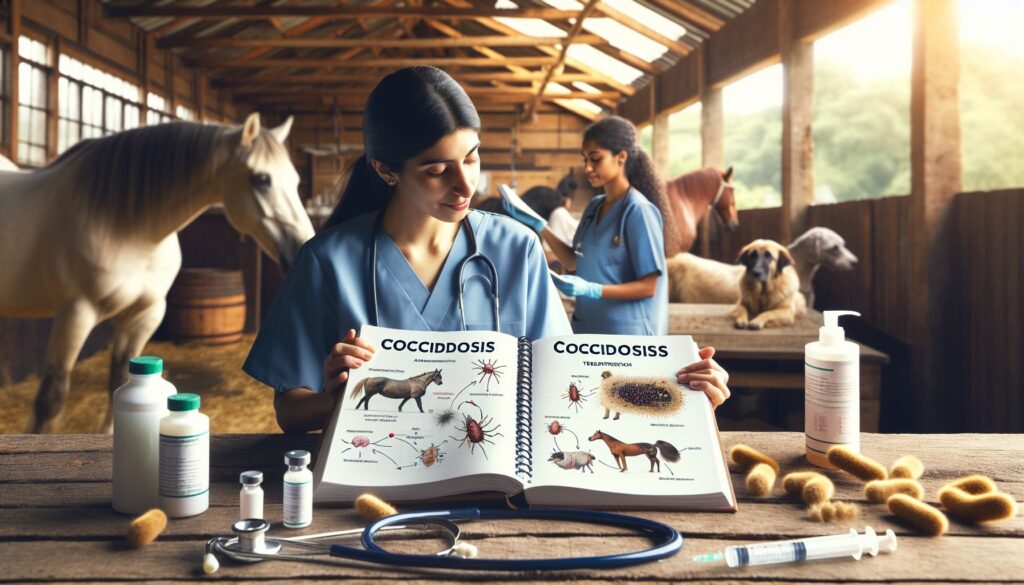
As animal lovers, we are constantly striving to provide the best care for our furry friends. One common health issue that many animals, particularly goats, can suffer from is coccidiosis. This parasitic disease can wreak havoc on an animal’s intestines, causing symptoms such as diarrhea, weight loss, and even death if left untreated. However, with the right treatment plan in place, we can help our animals recover and thrive once again.
One effective treatment for coccidiosis in animals is toltrazuril 5% Liquid solution. This medication comes in a convenient 240ml bottle, making it easy to administer to our animals. Toltrazuril works by targeting the coccidia parasites that are causing the infection, helping to eliminate them from the animal’s system. By following the recommended dosage instructions, we can help our animals overcome coccidiosis and get back to their happy, healthy selves.
When it comes to treating coccidiosis in animals, early detection is key. Keep a close eye on your animals for any signs of illness, such as diarrhea or decreased appetite. If you suspect that your animal may have coccidiosis, it is important to consult with your veterinarian right away. They can help confirm the diagnosis and recommend the best course of treatment for your specific situation.
In addition to toltrazuril, another medication that can be effective in treating coccidiosis in animals is Baycox. This oral solution is easy to administer and is often used in the treatment of coccidiosis in goats. Baycox works by targeting the coccidia parasites in the animal’s intestines, helping to eliminate the infection and restore their health. By following the recommended dosage instructions, we can help our goats recover from coccidiosis and prevent further spread of the disease.
In some cases, coccidiosis can lead to secondary infections, such as EPM (Equine Protozoal Myeloencephalitis). This serious neurological disease can be fatal if left untreated. If you suspect that your animal may have developed EPM as a result of coccidiosis, it is crucial to seek immediate veterinary care. Your veterinarian can provide the appropriate treatment to help your animal recover and prevent any further complications.
Prevention is always the best defense against coccidiosis in animals. By practicing good hygiene and sanitation measures, such as regularly cleaning and disinfecting your animal’s living space, you can help reduce the risk of coccidiosis transmission. Additionally, providing a balanced diet and ensuring access to clean water can help support your animal’s immune system and overall health, making them less susceptible to coccidiosis and other diseases.
In conclusion, coccidiosis is a common and potentially serious health issue that can affect animals, particularly goats. With the right treatment plan in place, we can help our animals recover from coccidiosis and prevent further complications. By using medications such as toltrazuril and Baycox, along with good hygiene practices and preventive measures, we can keep our animals healthy and happy. Remember to consult with your veterinarian if you suspect that your animal may have coccidiosis, as early detection and treatment are crucial for a successful recovery. Let’s continue to provide the best care for our furry friends and help them live their best lives.
- Coccidiosis Treatment for Animals: A Female Perspective

As pet owners, we always want the best for our furry friends. From making sure they have a cozy bed to providing the right nutrition, we go above and beyond to ensure their well-being. However, sometimes our beloved animals can fall prey to parasites like coccidia, causing diseases like coccidiosis.
Coccidiosis is a common disease in animals, particularly in goats, caused by a protozoan parasite called coccidia. This parasite can wreak havoc on your pet’s digestive system, leading to symptoms like diarrhea, weight loss, and general weakness. Luckily, there are effective treatments available that can help alleviate these symptoms and get your pet back to their happy, healthy self.
One such treatment is toltrazuril 5% Liquid solution, a powerful medication known for its effectiveness in treating coccidiosis in animals. With its active ingredient, toltrazuril works by killing the coccidia parasite, helping to stop the progression of the disease and providing relief to your pet. Available in a convenient 240ml bottle, this medication is easy to administer and can quickly start improving your pet’s condition.
When it comes to treating coccidiosis in animals, it’s essential to act quickly to prevent further complications. Left untreated, coccidiosis can lead to severe dehydration and even death in some cases. That’s why it’s crucial to consult with your veterinarian as soon as you notice any symptoms in your pet. They can provide a proper diagnosis and recommend the best course of treatment, which may include medications like toltrazuril 5% Liquid solution.
In addition to medications like toltrazuril, it’s essential to take steps to prevent coccidiosis from recurring in your pet. This includes keeping their living spaces clean and dry, providing a balanced diet, and practicing good hygiene practices. By taking these precautions, you can help reduce the risk of coccidiosis and keep your pet healthy and happy.
Another popular treatment for coccidiosis in animals is Baycox, a medication that is highly effective in treating coccidia infections. Baycox works by targeting the coccidia parasite, helping to eliminate it from your pet’s system and alleviate symptoms like diarrhea and weight loss. With Baycox, you can help your pet recover quickly and get back to their playful selves in no time.
In some cases, coccidiosis can also affect horses, leading to a condition known as Equine Protozoal Myeloencephalitis (EPM). EPM is a serious neurological disease that can cause symptoms like ataxia, muscle weakness, and incoordination in horses. To treat EPM in horses, medications like toltrazuril can be used, along with other treatments recommended by your veterinarian.
Overall, coccidiosis is a common but treatable disease in animals, and with the right medications and proper care, your pet can make a full recovery. Whether you have a goat, horse, or any other animal, it’s essential to be vigilant and proactive when it comes to their health. By watching for symptoms of coccidiosis and seeking prompt treatment, you can ensure that your furry friend stays happy and healthy for years to come.
In conclusion, coccidiosis is a disease that can affect a wide range of animals, but with the right treatment and care, it can be successfully managed. Medications like toltrazuril 5% Liquid solution and Baycox are highly effective in treating coccidia infections and helping your pet recover. By being proactive and following your veterinarian’s advice, you can help your pet overcome coccidiosis and enjoy a long, healthy life by your side.
- Treating Coccidiosis in Animals: A Female Perspective
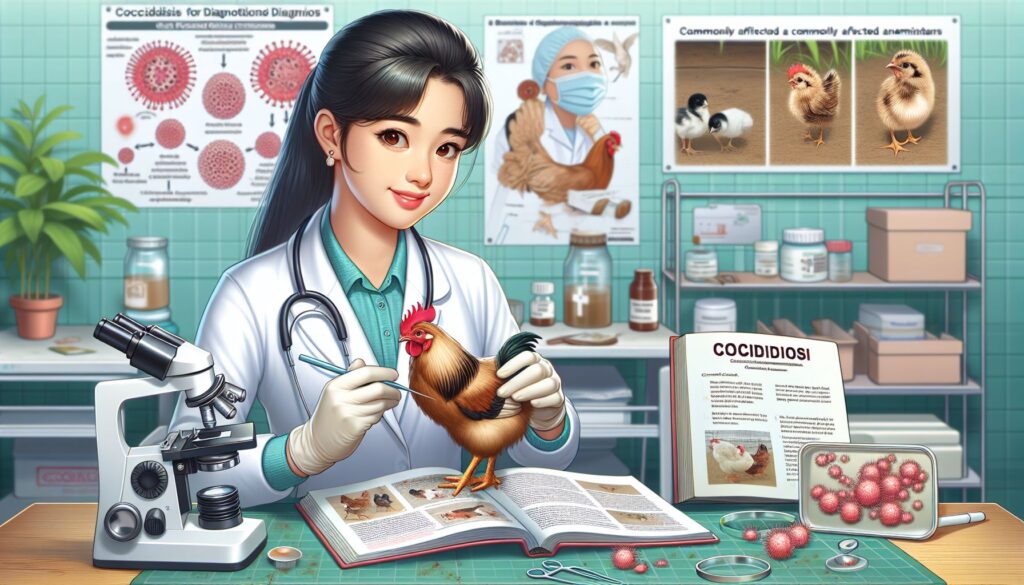
When it comes to caring for our beloved animals, nothing is more heartbreaking than seeing them suffer from a preventable illness. One common ailment that affects a wide range of animals, including goats and other livestock, is coccidiosis. This parasitic disease can wreak havoc on an animal’s digestive system, leading to symptoms such as diarrhea, weight loss, and even death if left untreated. As a compassionate animal lover, it’s important to be informed about coccidiosis treatment options so you can provide the best care for your furry friends.
One highly effective treatment for coccidiosis in animals is toltrazuril 5% liquid solution. This medication is specifically formulated to target and eliminate the coccidia parasites that cause the disease. Available in a convenient 240ml bottle, toltrazuril is easy to administer and can quickly bring relief to animals suffering from coccidiosis. It is important to follow the recommended dosage guidelines provided by your veterinarian to ensure the medication is effective in treating the infection.
For animals that are exhibiting severe symptoms of coccidiosis, such as weakness and dehydration, additional supportive care may be necessary. In these cases, a veterinarian may recommend using medications such as EPM or Baycox to help alleviate symptoms and improve the animal’s overall condition. These medications can provide much-needed relief to animals that are struggling to recover from a coccidiosis infection.
As a female animal caretaker, it can be particularly challenging to see our furry companions in distress. However, it is crucial to remain calm and focused when treating coccidiosis in animals. By following the guidance of a trusted veterinarian and administering medications such as toltrazuril and Baycox as directed, you can help your animals make a full recovery from this debilitating disease.
In addition to medication, there are steps you can take to prevent future outbreaks of coccidiosis in your animals. Maintaining a clean and sanitary living environment for your goats and other livestock is essential for preventing the spread of coccidia parasites. Regularly cleaning and disinfecting feeding and watering areas can help reduce the risk of infection, as well as separating sick animals from healthy ones to prevent the spread of the disease.
As you care for your animals and administer coccidiosis treatment, it’s important to monitor their progress and watch for any signs of improvement or deterioration. If you notice that your animals are not responding to treatment or are experiencing worsening symptoms, it’s crucial to contact your veterinarian immediately for further guidance.
In conclusion, coccidiosis is a serious disease that can have devastating effects on animals if left untreated. By being proactive in preventing and treating coccidiosis in your animals, you can ensure that they receive the care they need to overcome this illness and thrive once again. With the help of medications such as toltrazuril and supportive care options like Baycox, you can provide your animals with the best possible chance for a full recovery. So, roll up your sleeves, put on your caring cap, and let’s work together to conquer coccidiosis and keep our animal friends healthy and happy.
- Treating Coccidiosis in Animals: A Comprehensive Guide
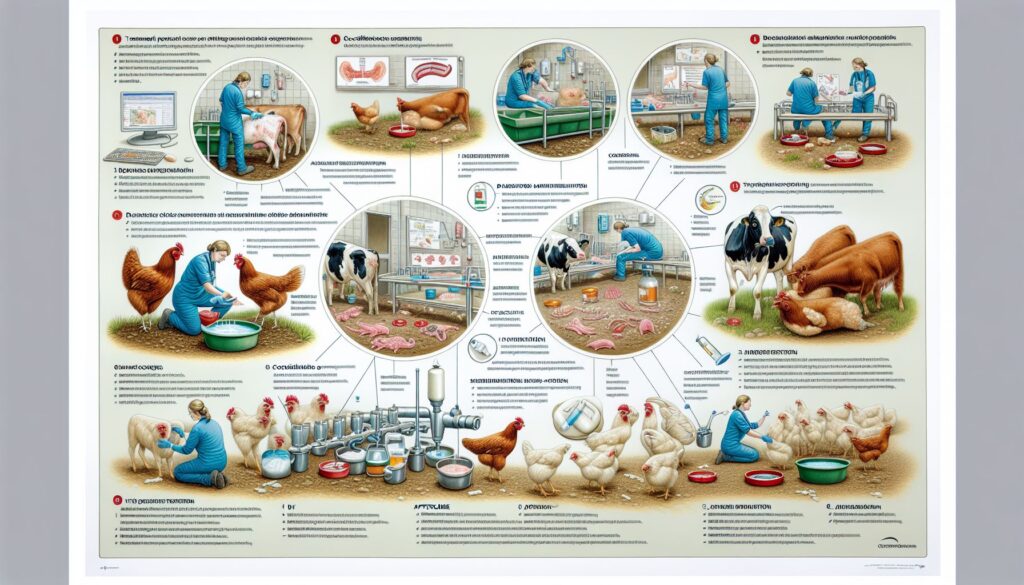
Coccidiosis is a common but potentially dangerous disease that affects a wide range of animals, including goats. If left untreated, coccidiosis can have severe consequences for your furry friends. However, with the right treatment and care, you can help your animals recover and prevent future outbreaks.
One of the most effective treatments for coccidiosis is toltrazuril 5% Liquid solution. This medication comes in a 240ml bottle and is easy to administer to your animals. Toltrazuril works by disrupting the coccidia parasite’s life cycle, ultimately killing off the infection and allowing your animals to heal.
When administering toltrazuril to your animals, it’s crucial to follow the dosage instructions provided by your veterinarian. Giving the correct amount of medication at the right time is essential for successful treatment and preventing the spread of coccidiosis to other animals.
In addition to toltrazuril, other medications like epm and baycox can also be effective in treating coccidiosis in animals. These medications work in similar ways to toltrazuril, targeting the coccidia parasite and stopping the infection in its tracks.
Along with medication, proper hygiene and sanitation practices are essential for treating and preventing coccidiosis in animals. Regularly cleaning your animals’ living areas, providing clean water and food, and separating sick animals from healthy ones can all help reduce the risk of coccidiosis outbreaks.
If you suspect that your animals may have coccidiosis, it’s crucial to act quickly and consult with your veterinarian. Early diagnosis and treatment are key to helping your animals recover and preventing the spread of the disease to other animals in your herd.
In some cases, coccidiosis can be a recurring issue for animals, especially in crowded or unsanitary living conditions. By taking proactive steps to prevent coccidiosis, such as regular deworming, vaccination, and implementing proper biosecurity measures, you can help reduce the risk of future outbreaks and keep your animals healthy and happy.
While coccidiosis can be a challenging and sometimes frustrating disease to deal with, with the right treatment and care, your animals can make a full recovery and live long, healthy lives. By working closely with your veterinarian and following their advice, you can help your animals overcome coccidiosis and prevent future infections.
In conclusion, coccidiosis is a serious disease that can have devastating effects on animals if left untreated. However, with the right treatment, including medications like toltrazuril 5% Liquid solution, and proper care, you can help your animals recover and prevent future outbreaks. By staying vigilant, practicing good hygiene, and working closely with your veterinarian, you can protect your animals from coccidiosis and ensure their health and well-being.
- Taking Care of Your Furry Friends: Coccidiosis Treatment for Animals
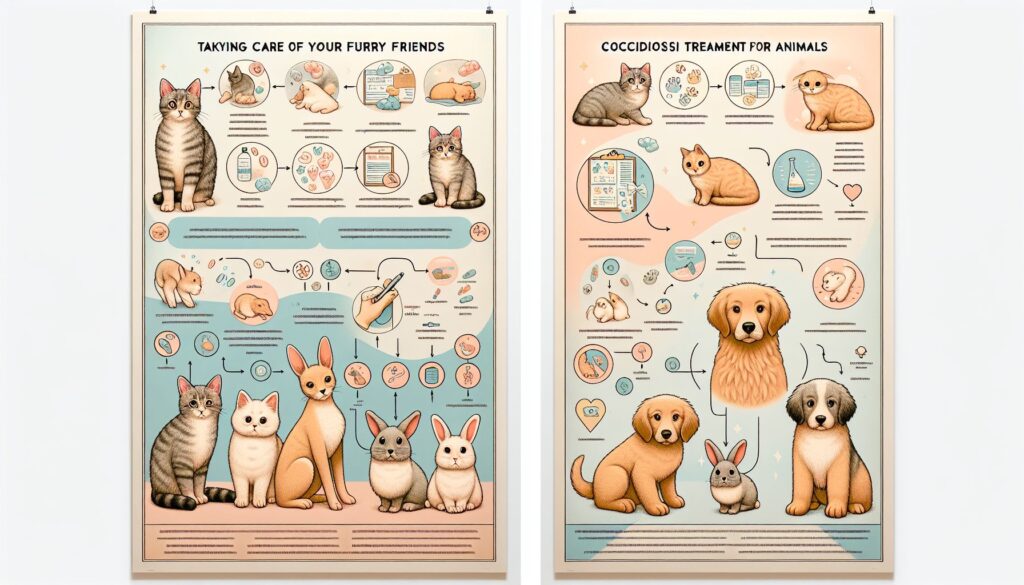
As pet owners, we want nothing more than to ensure the health and well-being of our beloved furry friends. However, sometimes unexpected health issues can arise, such as coccidiosis, a common intestinal disease caused by a tiny parasite called coccidia. If left untreated, coccidiosis can be detrimental to your pet’s health. But fear not, there are effective treatments available to help combat this pesky parasite and restore your pet’s health.
One of the most commonly used treatments for coccidiosis in animals is toltrazuril 5% Liquid solution. This medication works by disrupting the life cycle of the coccidia parasite, ultimately leading to its death. Toltrazuril is available in a 240ml bottle, making it convenient and easy to administer to your pet. It is important to follow the dosage instructions provided by your veterinarian to ensure the effectiveness of the treatment.
In addition to toltrazuril, other medications such as EPM and Baycox can also be used to treat coccidiosis in animals. These medications work in a similar fashion to toltrazuril by targeting the coccidia parasite and preventing it from causing further harm to your pet’s intestines. Your veterinarian will be able to determine the most appropriate treatment plan based on the severity of your pet’s condition.
When it comes to treating coccidiosis in goats, it is important to keep in mind that they are particularly susceptible to this parasite. By implementing proper management practices, such as maintaining clean living conditions and providing a balanced diet, you can help reduce the risk of coccidiosis in your goats. Regularly monitoring your goats for signs of coccidiosis, such as diarrhea and weight loss, can also help catch the disease early on and prevent it from spreading to other animals in your herd.
While treating coccidiosis in animals is important, it is equally as important to prevent the disease from occurring in the first place. By practicing good hygiene and sanitation measures, such as regularly cleaning and disinfecting your pet’s living quarters, you can help reduce the risk of coccidia contamination. Additionally, providing your pet with a healthy and balanced diet can strengthen their immune system and make them less susceptible to coccidiosis.
In conclusion, coccidiosis is a common intestinal disease that can affect a variety of animals, including goats. By being proactive and implementing proper management practices, such as administering medications like toltrazuril and monitoring your pet for signs of coccidiosis, you can help ensure the health and well-being of your furry friends. Remember, always consult with your veterinarian before starting any treatment plan for coccidiosis to ensure the best possible outcome for your pet.
- Treating Coccidiosis in Animals: A Feminine Perspective

As animal lovers, we want to ensure that our beloved pets are healthy and happy at all times. However, there are times when they may fall ill due to a condition such as coccidiosis. If you’ve ever had to deal with this parasitic infection in your animals, you know how distressing it can be. But fear not, there are effective treatments available to help combat coccidiosis and get your furry friends back to their energetic selves.
One of the most commonly used treatments for coccidiosis in animals is Toltrazuril 5% Liquid solution. This medication is highly effective in treating coccidiosis in a variety of animals, including goats, sheep, pigs, and poultry. It works by targeting the parasites that cause the infection, helping to eliminate them from your pet’s system and prevent further damage.
When treating coccidiosis in animals, it’s important to follow the instructions provided by your veterinarian carefully. The dosage and duration of treatment may vary depending on the severity of the infection and the type of animal being treated. It’s essential to complete the full course of medication, even if your pet starts to show signs of improvement, to ensure that all parasites are eliminated.
In addition to Toltrazuril 5% Liquid solution, other medications such as Baycox can also be used to treat coccidiosis in animals. Baycox is an antiprotozoal medication that is effective in killing coccidia parasites and helping to reduce the symptoms of the infection. It is available in both oral and injectable forms, making it easy to administer to your animals.
It’s important to keep in mind that coccidiosis can be a recurring condition, especially in animals that are kept in close quarters with others. Proper hygiene and sanitation practices can help prevent the spread of coccidia parasites and reduce the risk of reinfection. Regular cleaning of living areas, fresh bedding, and clean water sources are essential in maintaining a healthy environment for your animals.
If you suspect that your animals may be suffering from coccidiosis, it’s crucial to consult with your veterinarian as soon as possible. An accurate diagnosis and prompt treatment are key to helping your pets recover quickly and prevent further complications. Your veterinarian may recommend additional supportive care, such as fluids or electrolytes, to help your animals through the recovery process.
In conclusion, coccidiosis is a common parasitic infection that can affect a variety of animals, including goats, sheep, and poultry. Treatment options such as Toltrazuril 5% Liquid solution and Baycox are highly effective in combating this condition and helping your pets recover. By following your veterinarian’s guidance and maintaining proper hygiene practices, you can help prevent coccidiosis in your animals and ensure their continued health and happiness.
- Canine Parasites: Understanding, Preventing, and Treating
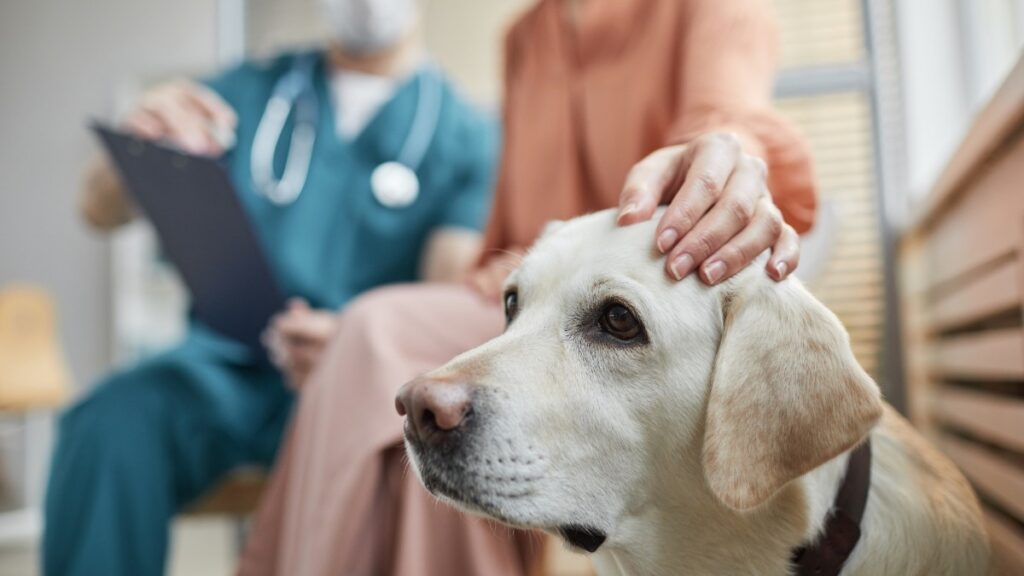
Man’s best friend, our loyal companions, are susceptible to a range of parasites that can threaten their health and well-being. From intestinal worms to external pests like fleas and ticks, canine parasites present a significant challenge for pet owners worldwide. Understanding these parasites, their modes of transmission, and effective prevention and treatment strategies is crucial for safeguarding the health of our beloved furry friends.
In this comprehensive guide, we will delve into the world of canine parasites, demystifying common threats, exploring preventive measures, discussing treatment strategies, shedding light on lesser-known parasites, and advocating for a holistic approach to parasite management that integrates nutrition and wellness practices.
Demystifying Canine Parasites: A Comprehensive Overview of Common Threats
Canine parasites come in various forms, ranging from internal worms to external pests. Some of the most common parasites affecting dogs include:
- Intestinal Worms: Roundworms, hookworms, whipworms, and tapeworms are among the most prevalent intestinal parasites in dogs. These parasites can cause symptoms such as diarrhea, vomiting, weight loss, and anemia if left untreated.
- Fleas: Fleas are blood-sucking parasites that can infest dogs, causing intense itching, skin irritation, and even allergic reactions in sensitive individuals. Additionally, fleas can transmit other parasites, such as tapeworms, exacerbating the problem.
- Ticks: Ticks are external parasites that latch onto dogs to feed on their blood. In addition to causing skin irritation and discomfort, ticks can transmit serious diseases such as Lyme disease, ehrlichiosis, and anaplasmosis.
- Heartworms: Transmitted through the bite of infected mosquitoes, heartworms can cause severe damage to a dog’s heart, lungs, and other vital organs if left untreated. Heartworm disease can be life-threatening and requires prompt intervention.
Understanding the life cycles, transmission routes, and clinical signs associated with these common parasites is essential for early detection and effective management.
Shielding Your Pooch: Proactive Measures for Preventing Canine Parasitic Infections

Prevention is key when it comes to protecting your dog from parasites. Here are some proactive measures you can take to minimize the risk of parasitic infections:
- Regular Veterinary Check-ups: Schedule routine visits to your veterinarian for comprehensive physical exams and parasite screenings. Your vet can recommend appropriate preventive medications and treatment plans based on your dog’s individual needs.
- Parasite Control Products: Use veterinarian-recommended flea and tick preventives year-round to repel and kill parasites before they can infest your dog. These products come in various forms, including topical treatments, oral medications, and collars, and provide long-lasting protection against a wide range of parasites.
- Maintain a Clean Environment: Keep your dog’s living area clean and free of debris to minimize the risk of flea infestations. Regularly vacuum carpets, wash bedding, and remove outdoor debris where fleas and ticks may hide.
- Practice Good Hygiene: Wash your dog’s bedding regularly and groom your pet frequently to check for signs of fleas, ticks, or other external parasites. Promptly remove any ticks found on your dog’s skin using tweezers and dispose of them properly.
- Limit Exposure to Infected Animals: Avoid contact with stray or wild animals that may carry parasites, such as raccoons, rodents, and other dogs with unknown health statuses. Additionally, prevent your dog from ingesting feces or contaminated soil where parasites may be present.
By implementing these preventive measures, you can significantly reduce the likelihood of your dog contracting parasitic infections and ensure their continued health and well-being.
Confronting the Enemy: Effective Treatment Strategies for Canine Parasites
Despite your best efforts at prevention, parasitic infections can still occur. When faced with a parasitic infestation, prompt and effective treatment is essential to eliminate the parasites and alleviate your dog’s symptoms. Treatment strategies may vary depending on the type of parasite involved and the severity of the infection, but common approaches include:
- Anthelmintic Medications: For intestinal parasite infections, such as roundworms, hookworms, whipworms, and tapeworms, your veterinarian may prescribe anthelmintic medications to kill the parasites and facilitate their expulsion from your dog’s digestive tract.
- Flea and Tick Treatments: Topical or oral medications containing insecticides or insect growth regulators can effectively kill fleas and ticks on your dog’s skin and prevent reinfestation. Your veterinarian can recommend the most appropriate product based on your dog’s age, weight, and health status.
- Heartworm Prevention: Monthly heartworm preventives are available in oral and topical formulations and are highly effective at protecting dogs against heartworm disease. These medications work by killing heartworm larvae transmitted by mosquitoes before they can mature into adult worms in the dog’s bloodstream.
- Environmental Control: In cases of severe flea infestations, environmental treatment may be necessary to eliminate flea eggs, larvae, and pupae from your home. Vacuuming, washing bedding, and using insecticidal sprays or foggers can help eradicate fleas from your living space.
- Complementary Therapies: In addition to conventional medications, some pet owners may explore complementary therapies such as herbal supplements, essential oils, or natural flea and tick repellents to complement their dog’s parasite treatment regimen. However, it’s essential to consult with your veterinarian before using any alternative treatments to ensure they are safe and effective for your dog.
By following your veterinarian’s recommendations and administering treatments as prescribed, you can effectively combat parasitic infections in your dog and restore their health and vitality.
Beyond the Basics: Exploring Lesser-Known Canine Parasites and Their Risks

While intestinal worms, fleas, ticks, and heartworms are among the most well-known canine parasites, several lesser-known parasites can also pose risks to dogs’ health. These include:
- Giardia: A protozoan parasite that infects the gastrointestinal tract, Giardia can cause diarrhea, vomiting, and weight loss in dogs. Contaminated water sources are a common route of transmission for Giardia infections.
- Coccidia: Another protozoan parasite, Coccidia can cause diarrhea and gastrointestinal upset in dogs, particularly puppies and immunocompromised individuals. Ingesting contaminated feces or soil is the primary mode of transmission for Coccidia.
- Lice: Although less common than fleas, lice can infest dogs and cause intense itching, skin irritation, and hair loss. Lice are typically spread through direct contact with infested animals or contaminated bedding.
- Mites: Ear mites, sarcoptic mange mites, and demodex mites are three types of mites that can affect dogs, causing ear infections, mange, and other skin conditions. Mites are highly contagious and can spread rapidly among pets in close contact.
Awareness of these lesser-known parasites and their associated risks is essential for early detection and prompt treatment in affected dogs.
A Holistic Approach: Integrating Nutrition and Wellness Practices in Canine Parasite Management
In addition to conventional preventive measures and treatments, adopting a holistic approach to canine parasite management can further support your dog’s health and well-being.
Follow us on Social Media:
- Comprehensive Small Pet Healthcare: Effectively Addressing Intestinal Parasites
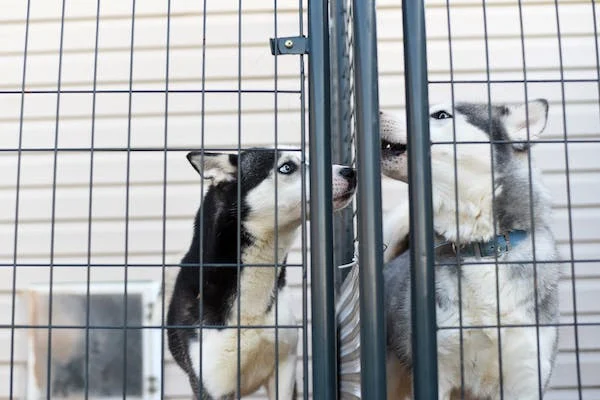
Welcome to coccidiosistreatment.com, your trusted resource for comprehensive small pet healthcare and effective solutions for addressing intestinal parasites. At toltrazurilshop.com, we understand the importance of maintaining the well-being of your cherished small pets, and we specialize in providing guidance and products to combat coccidiosis effectively. Our website, coccidiosistreatment.com, serves as a valuable hub where pet owners can access vital information on intestinal parasites and discover the latest advances in coccidiosis treatment. With our commitment to offering reliable advice and access to high-quality products, we aim to empower pet owners in safeguarding the health and happiness of their beloved furry companions. Explore our resources and solutions to ensure the best care for your small pets.
Importance of small Pet Care
Small pet care is not just a responsibility; it’s a labor of love. These tiny creatures rely on us to provide for their every need, from food and shelter to health and happiness. It’s essential to prioritize their well-being because they bring so much joy into our lives.
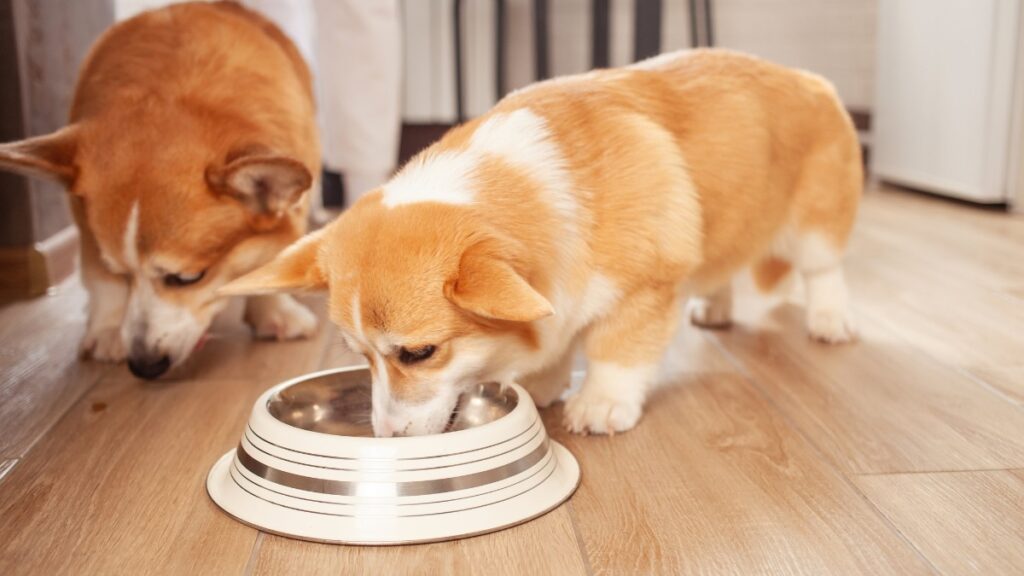
When it comes to small pets like rabbits, guinea pigs, and hamsters, understanding their unique physiology and health needs is crucial. Each species has its own set of requirements that must be met in order for them to thrive. From providing the right type of bedding material to ensuring they have enough space to exercise, attention to detail is key.
Intestinal parasites can pose serious risks to the health of small pets if not addressed promptly. These unwelcome guests can cause symptoms such as diarrhea, weight loss, and even organ damage in severe cases. Regular veterinary check-ups are vital for early detection and treatment.
Preventative measures play a crucial role in keeping intestinal parasites at bay. Maintaining cleanliness and hygiene within your pet’s living environment is paramount. Regularly cleaning cages or enclosures helps minimize the risk of infestation.
Diet and nutrition also play a significant role in preventing parasitic infections in small pets. Providing a balanced diet rich in nutrients strengthens their immune system, making them less susceptible to these invaders.
In addition to conventional treatments such as medications or deworming protocols prescribed by veterinarians, alternative treatments and home remedies may also be considered under professional guidance.
Recovery from an intestinal parasite infection requires careful monitoring post-treatment along with adjustments in diet and living conditions if necessary. It’s important not only for your pet’s immediate recovery but also for long-term prevention strategies moving forward.
By staying informed about the latest research advancements in this field, we can ensure that we are equipped with up-to-date knowledge on effective parasite control methods specific to small pets’ needs.
The journey towards comprehensive care for small pets involves dedication, time commitment, and a genuine passion for their well-being. So let’s join forces toOverview of intestinal parasites in small pets

Intestinal parasites can be a common concern for small pet owners. These tiny organisms, such as worms and protozoa, can wreak havoc on the digestive system of our furry friends. It’s important to have a basic understanding of these parasites in order to properly care for our beloved pets.
There are several types of intestinal parasites that can affect small pets, including roundworms, hookworms, tapeworms, and coccidia. Each type has its own unique characteristics and ways of infesting the host’s body. While some parasites may cause mild symptoms like diarrhea or weight loss, others can lead to more serious health issues if left untreated.
Diagnosing intestinal parasites in small pets typically involves a thorough examination by a veterinarian who will conduct fecal tests to identify any eggs or larvae present in the stool sample. These tests help determine the specific type of parasite and guide the appropriate treatment plan.
Preventing parasitic infections is crucial for maintaining your small pet’s overall health. Practicing good hygiene by regularly cleaning their living environment and providing clean food and water is essential. Additionally, feeding them a balanced diet rich in nutrients helps strengthen their immune system which makes it harder for parasites to thrive.
Regular veterinary check-ups play a vital role in preventing and treating intestinal parasites in small pets. Your vet will not only monitor your pet’s overall health but also provide necessary vaccinations and deworming treatments when needed.
When it comes to treating intestinal parasite infections, there are both conventional medications available as well as alternative treatments like natural remedies that can be effective against certain types of parasites. However, it is important to consult with your veterinarian before trying any home remedies or alternative treatments as they will know what works best for your specific situation.
Recovery from an intestinal parasite infection requires careful monitoring post-treatment. Observing changes in your pet’s behavior, appetite, bowel movements along with regular follow-up visits with your vet ensures that they are on the path to recovery.1. Understanding Small Pets
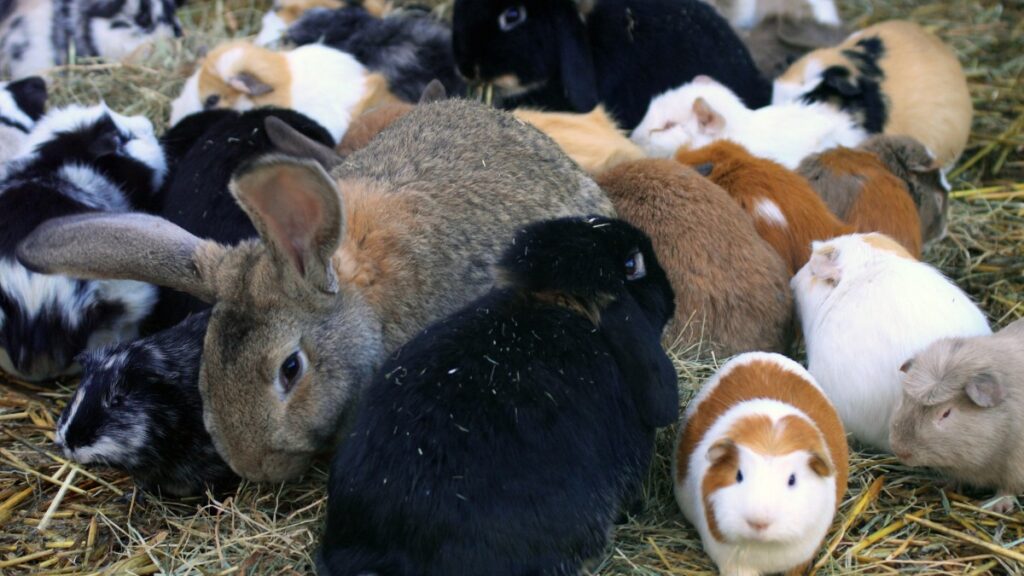
Small pets, such as rabbits, guinea pigs, and hamsters, are adorable additions to any household. They may be tiny in size but require just as much care and attention as their larger counterparts. Before bringing a small pet into your home, it’s important to have a basic understanding of their physiology and health needs.
Different types of small pets have varying characteristics that make them unique. Rabbits are herbivores with sharp teeth for chewing on fibrous vegetation. Guinea pigs are social animals that thrive when they have companionship. Hamsters are nocturnal creatures that love to burrow and explore their surroundings.
To ensure the well-being of these delightful creatures, it is crucial to provide them with proper nutrition and a suitable living environment. Just like humans, small pets need regular exercise to maintain good health. Enclosures should be spacious enough for them to move around comfortably while also providing hiding spots for privacy.
In addition to physical care, mental stimulation is essential for small pets’ overall well-being. Providing toys or activities that encourage natural behaviors can prevent boredom and promote happiness in these curious critters.
By understanding the specific needs of each type of small pet, you can create an environment where they can thrive happily alongside your family members!Common types of small pets (rabbits, guinea pigs, hamsters, etc.)
When it comes to small pets, there are a variety of adorable and fascinating creatures to choose from. Let’s take a closer look at some of the common types of small pets that people often bring into their homes.
Rabbits are known for their fluffy coats and twitchy noses. They can be quite sociable and enjoy interacting with their human companions. Guinea pigs, on the other hand, have short fur and make cute little squeaks. These gentle creatures love munching on fresh veggies and hay.
Hamsters come in different breeds but all share one thing in common – they’re incredibly adorable! From Syrian hamsters to dwarf varieties, these tiny critters are great for those who have limited space.
Ferrets may not be as well-known as rabbits or guinea pigs, but they are equally delightful as pets. With their playful nature and curious personalities, ferrets can keep you entertained for hours on end.
Each type of small pet has its own unique needs when it comes to diet, habitat, and social interaction. It’s important to research thoroughly before bringing any pet home so that you can provide them with the best care possible!
Remember: taking care of a small pet is a big responsibility – one that requires time, patience, and commitment. So whether you choose a rabbit or opt for something more exotic like a sugar glider or hedgehog – always ensure that you’re providing them with proper nutrition, regular veterinary check-ups,and lots of love!
Stay tuned for the next section where we dive deeper into intestinal parasites in small petsBasic physiology and health needs
Understanding Small Pets
When it comes to small pets like rabbits, guinea pigs, and hamsters, it’s important to have a good grasp of their basic physiology and health needs. These furry friends may be tiny in size, but they still require specific care to thrive.
Small pets have unique digestive systems that differ from larger animals. For example, rabbits are known as hindgut fermenters, meaning they rely on the fermentation of fiber in their large intestine for proper digestion. This makes a high-fiber diet crucial for their well-being.
In addition to dietary considerations, providing appropriate housing and environmental enrichment is key. Small pets need enough space to move around comfortably and engage in natural behaviors such as digging or climbing. It’s also essential to ensure they have access to fresh water at all times.
Regular veterinary check-ups are vital for monitoring the overall health of your small pet. These visits allow professionals to detect any signs of intestinal parasites or other illnesses early on so that prompt treatment can be administered.
By understanding the basic physiology and health needs of small pets like rabbits, guinea pigs, and hamsters, you can provide them with the comprehensive care they deserve. Remember – these adorable creatures may be petite in size but keeping them happy and healthy requires no less effort!2. Intestinal Parasites in Small Pets

Intestinal parasites can pose significant health risks to small pets, making it crucial for pet owners to be aware of these potential threats. These parasites are organisms that live in the digestive system of animals and can cause a range of symptoms and complications if left untreated.
There are several types of intestinal parasites that commonly affect small pets, including worms such as roundworms, hookworms, and tapeworms. These parasites can enter the pet’s body through contaminated food or water, or from contact with other infected animals.
Symptoms of intestinal parasite infestation in small pets may vary but often include diarrhea, weight loss, poor appetite, vomiting, and lethargy. If you notice any unusual signs or suspect your pet may have an intestinal parasite infection, it is essential to consult with a veterinarian for proper diagnosis.
Veterinarians have various methods for diagnosing intestinal parasites in small pets. They may perform fecal examinations to check for the presence of parasite eggs or use blood tests to detect specific antibodies against certain parasites.
Treatment options for intestinal parasites typically involve medications that target and eliminate the specific type of parasite affecting the pet. Deworming medications are commonly prescribed by veterinarians and help eradicate adult worms while also preventing reinfestation.
In addition to conventional treatments like medication-based approaches, some alternative treatments and home remedies claim effectiveness against certain types of intestinal parasites in small pets. However,it is important always seek guidance from a veterinarian before attemxiorpting any alternative treatment on your own as they will ensure safe practices are followed.
Remember that recovery from an intestinal parasite infection requires ongoing care and monitoring post-treatment. Your veterinarian will provide instructions on follow-up appointments as well as adjustments needed in your pet’s diet and living conditions during their recovery period.
Preventing future infections is equally important when it comes to ensuring your small pet’s overall health. Practicing good hygiene by regularly cleaning cages or living areas helps minimize exposure to potentially infectious materials. Providing a balanced diet with proper nutrition also plays a role in supporting your pet’sTypes of intestinal parasites
Intestinal parasites are a common concern for small pet owners. These microscopic organisms can wreak havoc on their delicate digestive systems, causing discomfort and even serious health issues. It’s important to be aware of the different types of intestinal parasites that can affect small pets so that you can take appropriate measures to prevent and treat them.
One type of intestinal parasite commonly found in small pets is coccidia. This single-celled organism can multiply rapidly in the intestines, leading to diarrhea, weight loss, and dehydration. Another common parasite is giardia, which causes similar symptoms and can be transmitted through contaminated food or water.
Tapeworms are another type of intestinal parasite that affects small pets like rabbits or guinea pigs. These segmented worms attach themselves to the lining of the intestine and absorb nutrients from the host’s body. They can cause weight loss, poor coat condition, and irritation around the anus.
Roundworms are yet another group of parasites that commonly infect small pets such as hamsters or mice. These long, spaghetti-like worms live in the intestines and reproduce rapidly. Infected animals may exhibit symptoms such as bloating, vomiting, diarrhea, or a pot-bellied appearance.
To determine if your pet has any intestinal parasites, it’s essential to consult with a veterinarian who can perform diagnostic tests such as fecal examinations or blood tests. Early detection is crucial for prompt treatment and preventing further complications.
Remember that each parasitic infection requires specific treatment protocols tailored to your pet’s needs!Symptoms and diagnosis
Small pets, just like their larger counterparts, are not immune to the threat of intestinal parasites. These tiny organisms can wreak havoc on the health and well-being of our furry friends if left undetected and untreated. Recognizing the symptoms of these pesky parasites is crucial in ensuring timely intervention.
When it comes to diagnosing intestinal parasites in small pets, there are several signs that pet owners should be aware of. One common symptom is diarrhea, which may range from mild to severe depending on the type and severity of the infestation. Additionally, pets may experience weight loss or a lack of appetite as a result of these unwanted hitchhikers in their digestive system.
Owners may also notice changes in behavior such as lethargy or increased irritability. Some pets may develop a bloated abdomen or exhibit vomiting. It’s important to remember that while these symptoms could indicate an intestinal parasite infection, they could also be indicative of other underlying health issues.
To confirm whether your small pet has intestinal parasites, it is essential to consult with a veterinarian who can conduct various diagnostic tests. These tests often involve analyzing fecal samples for the presence of parasite eggs or larvae under a microscope. In some cases, blood tests or imaging studies may be necessary for accurate diagnosis.
Early detection and proper diagnosis play pivotal roles in effectively treating and managing intestinal parasite infections in small pets. By being attentive to any changes in your pet’s behavior or bodily functions and seeking professional veterinary care when needed, you can ensure that your furry friend receives prompt treatment for any potential parasitic infestations they might have encountered along their adventures!3. Preventative Measures
When it comes to keeping our small pets healthy, prevention is key. By taking proactive steps, we can help protect them from the pesky intestinal parasites that may try to invade their digestive systems. Here are some preventative measures you can take:
1. Cleanliness and Hygiene: Maintaining a clean living environment for your small pet is crucial in preventing the spread of parasites. Regularly clean their cages or enclosures, removing any waste promptly and disinfecting surfaces when necessary.
2. Diet and Nutrition: A balanced diet rich in nutrients plays a vital role in supporting your pet’s immune system and overall health. Make sure to provide them with high-quality food that meets their specific nutritional needs.
3. Regular Veterinary Check-Ups: Scheduling regular check-ups with your veterinarian allows for early detection of any potential parasite infestations or other health issues. Your vet can also provide guidance on preventative treatments such as vaccinations or deworming medications.
Remember, prevention is always better than cure! By implementing these preventive measures into your small pet’s routine care, you’re taking important steps towards ensuring their well-being and happiness.Importance of cleanliness and hygiene
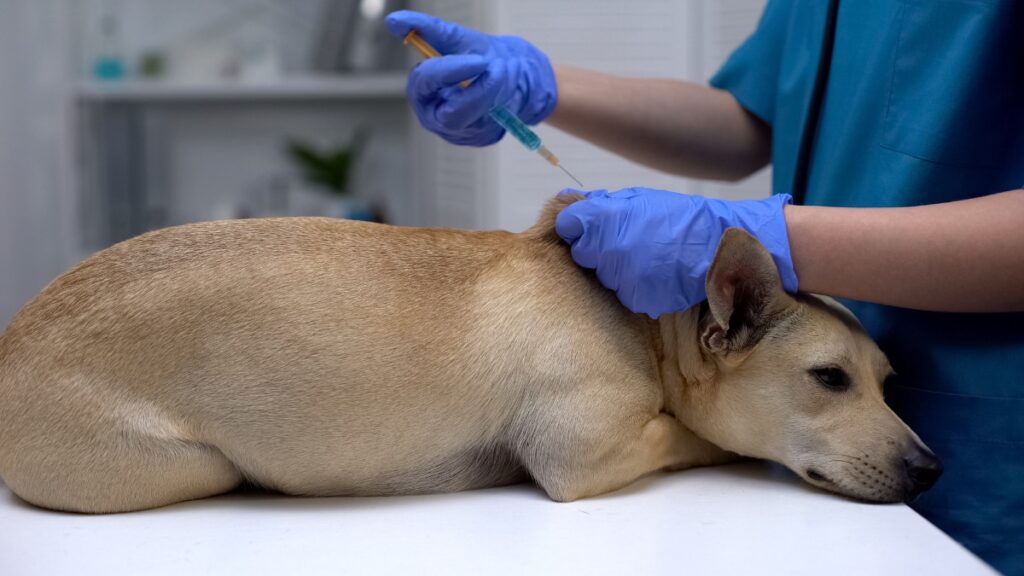
Maintaining cleanliness and hygiene is crucial when it comes to the well-being of small pets. It not only helps prevent the spread of intestinal parasites but also ensures a healthy living environment for your furry friend.
Regular cleaning of cages or enclosures is essential to remove any feces, urine, or other potential sources of contamination. This will help minimize the risk of parasites thriving in these areas. Use appropriate disinfectants recommended by your veterinarian to thoroughly clean and sanitize their living space.
Additionally, providing fresh bedding material on a regular basis can help reduce the chances of parasite infestation. Dirty bedding can harbor eggs or larvae from intestinal parasites, so it’s important to maintain cleanliness in this aspect as well.
Pet owners should also practice good personal hygiene when handling their small pets. Wash your hands thoroughly before and after interacting with them, especially if you’ve been cleaning their living space or handling their waste materials.
Furthermore, maintaining a clean feeding area is equally important. Regularly wash food bowls and water dispensers with hot soapy water to eliminate any potential contamination that could lead to parasitic infections.
Prioritizing cleanliness and hygiene plays a vital role in preventing intestinal parasites in small pets. By practicing proper sanitation measures such as regular cage cleaning, providing clean bedding material, washing hands diligently, and keeping feeding areas tidy, pet owners can create an environment that minimizes the risk of parasitic infestations and keeps their beloved companions happy and healthy!Diet and nutrition for preventing parasites
When it comes to keeping our small pets healthy, proper diet and nutrition play a crucial role. A well-balanced diet not only helps support their overall health but also plays a key role in preventing the occurrence of intestinal parasites.
Feeding your small pets a nutritious diet rich in high-quality ingredients is essential. Ensure that their food contains all the necessary vitamins, minerals, and essential nutrients to boost their immune system. Fresh vegetables like carrots, spinach, and bell peppers can provide additional fiber and help maintain a healthy digestive system.
Avoid feeding your pets any raw or undercooked meat as it may contain parasites. It’s important to provide them with clean, fresh water at all times to ensure hydration and digestion.
Consider adding natural supplements such as probiotics to promote good gut health for your furry friends. These supplements can help maintain a balanced gut microbiome, making it difficult for parasites to thrive.
Additionally, practicing good hygiene when handling food bowls and litter boxes is crucial. Regularly clean these areas thoroughly using pet-safe disinfectants to minimize the risk of parasite infestation.
Remember that prevention is always better than cure when it comes to protecting our small pets from intestinal parasites. By providing them with proper nutrition and maintaining cleanliness in their living environment, we can significantly reduce the chances of parasitic infections occurring. So let’s prioritize their well-being by offering them a wholesome diet tailored specifically for their needs!Regular veterinary check-ups
Regular veterinary check-ups are an essential part of comprehensive care for small pets. Just like humans, our furry friends also need routine examinations to ensure their overall health and well-being. During these check-ups, veterinarians can assess your pet’s condition, identify potential issues early on, and provide necessary treatments or preventative measures.
During a regular visit to the vet, your pet will undergo a thorough physical examination. The vet will examine their teeth, ears, eyes, coat condition, and body weight. They may also listen to your pet’s heart and lungs for any abnormal sounds or rhythms.
In addition to the physical examination, vets may recommend specific tests depending on your pet’s species and lifestyle. These tests could include fecal exams to check for intestinal parasites or blood work to evaluate organ function.
Regular veterinary visits are especially important when it comes to detecting and preventing intestinal parasites in small pets. Many types of parasitic infections can go unnoticed until they cause significant harm or discomfort for your pet. By having routine check-ups with a veterinarian who specializes in small animal care, you can catch these parasites early before they become a bigger problem.
As responsible pet owners, it is crucial that we prioritize regular veterinary check-ups for our small pets. This proactive approach allows us to stay ahead of potential health issues and take appropriate actions if needed. So mark those dates on your calendar and make sure not to miss those important visits! Your beloved little companion will thank you for it!4. Treatment Options
When it comes to tackling intestinal parasites in small pets, there are various treatment options available. The key is to work closely with a veterinarian who can guide you through the process and recommend the most appropriate course of action for your furry friend.
Conventional treatments often involve medications specifically designed to target and eliminate intestinal parasites. These medications may come in the form of oral tablets or topical solutions that are administered directly on the pet’s skin. It’s important to follow the dosage instructions provided by your vet and complete the full course of treatment, even if symptoms improve.
In addition to conventional treatments, some pet owners opt for alternative remedies or home remedies. While these approaches may have their merits, it’s crucial to consult with a vet before trying anything new. They can provide insights into any potential risks or interactions with existing medications.
Remember, after receiving treatment, it’s important to monitor your pet’s health closely and make any necessary adjustments in diet and living conditions as recommended by your veterinarian. This will help ensure that they fully recover from the effects of intestinal parasites and minimize the risk of reinfection.
By working together with your vet and following their guidance throughout the treatment process, you can effectively tackle intestinal parasites in small pets and promote their overall well-being!Conventional treatments (medications, deworming)
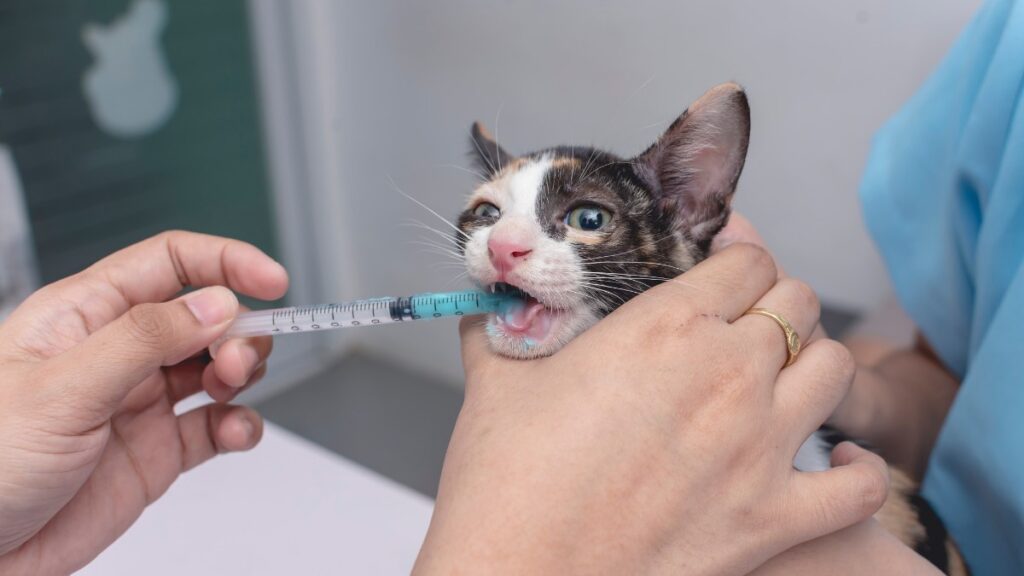
When it comes to tackling intestinal parasites in small pets, conventional treatments play a crucial role. These treatments typically involve the use of medications and deworming protocols that are designed to target and eliminate parasites effectively.
Medications prescribed by veterinarians are specifically formulated to combat different types of intestinal parasites. They may come in various forms such as tablets or liquids, making administration easier for pet owners. The dosage and duration of the medication will depend on the severity of the infestation and the type of parasite involved.
Deworming is another common approach used to treat intestinal parasites in small pets. This involves administering oral medications that directly target worms living within their digestive system. Regular deworming schedules help prevent reinfection and ensure optimal health for your furry friend.
It is important to note that while conventional treatments can be highly effective, they should always be administered under veterinary guidance. Veterinarians have extensive knowledge about these medications’ safety profiles, appropriate dosages, potential side effects, and any necessary precautions.
Remember, each case is unique, so it’s essential not to self-diagnose or self-medicate your pet without professional advice. Always consult with a veterinarian who can provide accurate diagnoses and recommend suitable treatment options based on your pet’s specific needs.
By following proper treatment protocols using conventional methods like medication administration and deworming practices recommended by experts in veterinary care, you can help ensure the well-being of your small companion animal when dealing with intestinal parasites.Alternative treatments and home remedies
Alternative treatments and home remedies are often sought after by pet owners who prefer a more natural approach to their small pet’s healthcare. While conventional medications and deworming treatments can be effective, some people may want to explore other options. It’s important to note that alternative treatments should always be used in conjunction with the guidance of a veterinarian.
One popular alternative treatment for intestinal parasites is herbal remedies. Certain herbs like garlic, wormwood, and pumpkin seeds have been traditionally used to help eliminate parasites from the digestive system. However, it’s crucial to remember that not all herbs are safe for pets, so consulting with a holistic vet is essential before administering any herbal remedy.
Another option worth considering is probiotics. These beneficial bacteria can help support the gut health of your small pet and create an environment less favorable for parasites to thrive. Probiotics can be found in certain foods or supplements specifically formulated for small pets.
Some pet owners also swear by diatomaceous earth as a natural way to tackle intestinal parasites. This fine powder made from fossilized algae acts as an abrasive substance when ingested by parasites, causing them harm.
It’s important to keep in mind that while these alternative treatments may show promise, they have not undergone extensive scientific research or clinical trials specific to small pets’ needs. Therefore, it is crucial always consult with a veterinarian before implementing any alternative treatment or home remedy.Importance of following vet’s guidance
When it comes to the health and well-being of our small pets, it is crucial to follow the guidance of a trusted veterinarian. These professionals have years of experience and expertise in diagnosing and treating various conditions, including intestinal parasites.
Vets play a vital role in ensuring that your pet receives the appropriate treatment for their specific parasite infestation. They will recommend the most effective medications or dewormers based on factors such as the type of parasite, severity of infection, and your pet’s overall health.
It can be tempting to seek alternative treatments or home remedies found online, but this can be risky. Vets are trained to accurately diagnose parasites and prescribe safe and effective treatments. They understand potential side effects, correct dosages, and proper administration methods.
Following your vet’s guidance ensures that your pet receives the appropriate care at every stage – from initial diagnosis through treatment and recovery. Their expertise helps minimize any potential risks associated with untreated or improperly treated parasitic infections.
Remember that each case is unique. Your vet will tailor their recommendations based on your pet’s specific needs. By following their guidance diligently, you provide the best possible care for your beloved small pet.
So next time you visit your vet for an intestinal parasite issue or any other concern regarding your small pet’s health, trust their expertise wholeheartedly!5. Recovery and Aftercare
Recovery and aftercare play a crucial role in ensuring the overall health and well-being of small pets after they have been treated for intestinal parasites. It is important to closely monitor their progress and make necessary adjustments to their diet and living conditions.
After completing the treatment, it’s essential to keep a close eye on your pet’s health. Observe them for any signs of relapse or recurring symptoms. Regularly check their stool for any presence of parasites or abnormality. If you notice anything unusual, consult your veterinarian immediately.
In terms of diet, providing a balanced and nutritionally-rich meal is key to supporting your pet’s recovery process. Make sure they are getting enough vitamins, minerals, and protein through high-quality food specifically designed for their species.
Considering that certain parasites can thrive in dirty environments, maintaining cleanliness is paramount. Regularly clean your pet’s habitat, including cages or enclosures, bedding materials, toys, and water bottles. This will help prevent re-infestation.
To further safeguard against future infections: practice good hygiene by washing hands thoroughly before and after handling your pet; ensure proper sanitation practices in their environment; avoid contact with potentially contaminated soil or feces from other animals.
Lastly but importantly – don’t forget about regular veterinary check-ups! These visits allow the vet to assess the effectiveness of treatment while catching any potential issues early on.
Remember that each small pet may require different care during recovery based on factors such as species type, age, overall health condition etc., so always follow your veterinarian’s guidance closely for tailored aftercare instructions suited specifically to your beloved companion animalMonitoring health post-treatment
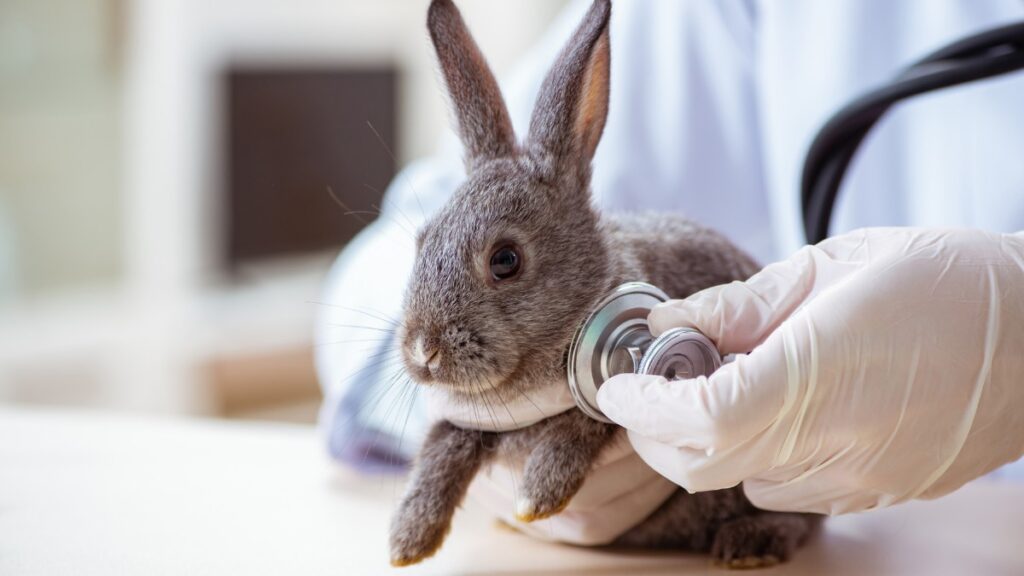
Monitoring the health of your small pet after treatment for intestinal parasites is crucial to ensure a successful recovery. While the treatment may have eliminated the parasites, it’s important to keep an eye on your pet’s overall well-being and watch for any signs of relapse or complications.
One key aspect of post-treatment monitoring is observing your pet’s behavior and appetite. If they are eating well, maintaining their weight, and exhibiting normal activity levels, it is generally a positive sign that they are recovering as expected.
It is also important to continue practicing good hygiene and cleanliness in their living environment. Regularly clean their cage or enclosure, wash their bedding thoroughly, and disinfect any toys or accessories they come into contact with. This helps prevent reinfestation by eliminating any potential sources of parasites.
Another aspect of monitoring includes regular veterinary check-ups. Schedule follow-up appointments with your vet to assess your pet’s progress and discuss any concerns you may have. They can perform further tests if needed and provide guidance on ongoing prevention strategies.
Additionally, consider making adjustments to your small pet’s diet based on recommendations from the veterinarian. A balanced diet rich in nutrients can help boost their immune system and support overall health, reducing the risk of future parasite infestations.
Remember, each small pet is unique, so it’s essential to closely monitor them post-treatment based on individual needs and specific instructions provided by the vet. By staying vigilant about their wellbeing even after treatment, you can help ensure long-term intestinal parasite control for your beloved furry friendAdjustments in diet and living conditions
Adjustments in Diet and Living Conditions
When it comes to tackling intestinal parasites in small pets, making adjustments in their diet and living conditions is crucial. These changes can help create an environment that is less favorable for the parasites to thrive and reproduce.
Let’s talk about diet. Providing a nutritious and balanced diet plays a significant role in maintaining your small pet’s overall health and immunity. A well-fed pet is more likely to have a stronger immune system, which can help fight off potential infections caused by parasites.
Consider incorporating foods that are known for their anti-parasitic properties into your pet’s diet. For example, pumpkin seeds contain natural compounds that can help expel worms from the digestive tract. Likewise, garlic has been used as a natural deworming agent for centuries due to its potent antimicrobial properties.
In addition to dietary adjustments, ensuring proper hygiene within your pet’s living area is essential. Regularly cleaning cages or enclosures helps eliminate any fecal matter or contaminated bedding where parasite eggs may be present.
Furthermore, consider providing ample exercise opportunities for your small pet. Exercise not only promotes physical fitness but also enhances digestion and improves overall gut health.
Remember, each species of small pets may require specific adjustments based on their unique needs. It is always best to consult with your veterinarian who can provide tailored advice regarding dietary modifications and optimizing living conditions for preventing intestinal parasites.
By implementing these adjustments in both diet and living conditions, you are taking proactive steps towards protecting your beloved furry friend from the harmful effects of intestinal parasites!Ongoing prevention strategies
Ongoing prevention strategies are crucial for keeping small pets free from intestinal parasites. By implementing these practices, pet owners can ensure their furry companions stay healthy and happy.
Regular cleaning of cages or living areas is essential to prevent the buildup of feces and potential exposure to parasites. This includes removing soiled bedding, sanitizing surfaces, and providing fresh water daily.
Maintaining a balanced diet is another key factor in preventing parasitic infections. A nutritionally sound diet helps keep small pets’ immune systems strong, making them less susceptible to parasites. Ensure that your pet’s food is high-quality and appropriate for their specific needs.
Regular veterinary check-ups play a vital role in preventive care as well. Veterinarians can perform fecal exams to detect any signs of parasite eggs or larvae early on. They may also recommend preventative treatments such as deworming medications if necessary.
In addition to conventional treatments, there are natural options available for preventing intestinal parasites in small pets. Some herbal supplements have been found to have anti-parasitic properties and can be used alongside regular veterinary care.
Ongoing prevention strategies are essential for the well-being of small pets when it comes to combating intestinal parasites effectively. By practicing good hygiene, providing a nutritious diet, staying proactive with vet visits, and considering alternative treatments when appropriate – pet owners can help protect their beloved furry friends from these pesky invaders!Case Studies
Intestinal parasites can wreak havoc on the health and well-being of small pets, but with comprehensive care, these pesky invaders can be effectively tackled. Let’s take a closer look at some interesting case studies that highlight the importance of addressing intestinal parasites in small pets.
Case Study 1: Meet Fluffy, a curious little rabbit who started showing signs of weight loss and decreased appetite. After careful examination by a veterinarian, it was discovered that Fluffy had contracted coccidiosis, a common type of intestinal parasite in rabbits. Prompt treatment with medication helped Fluffy recover and regain her energy.
Case Study 2: Charlie the guinea pig was experiencing chronic diarrhea and discomfort. Upon further investigation, it was revealed that he had been infected with giardia, another prevalent parasite among small pets. With proper veterinary intervention and appropriate deworming medications, Charlie’s symptoms were alleviated.
These real-life examples demonstrate how crucial it is to promptly identify and treat intestinal parasites in small pets to ensure their overall health and happiness. Regular check-ups with a knowledgeable veterinarian are essential for early detection and prevention strategies tailored to each pet’s specific needs.
Remember, every case is unique! It is always important to follow your vet’s guidance when treating intestinal parasites in your beloved furry friends. Stay informed about the latest research advancements in this field as new treatments may become available for even more effective management of these pests.
By staying vigilant about cleanliness, providing a balanced diet rich in nutrients, scheduling regular veterinary check-ups,and following appropriate treatment protocols,you can help keep your small pet free from troublesome intestinal parasites.
These efforts will contribute greatly to ensuring their long-term healthand well-being.Latest research and advancements in the field
Researchers and scientists are constantly striving to improve small pet care by exploring new discoveries and advancements in the field of intestinal parasite treatment. The ongoing research focuses on finding more effective strategies for preventing and treating these pesky parasites.
One area of interest is the development of novel medications specifically designed to target intestinal parasites in small pets. These medications aim to provide faster and more efficient relief, reducing the time it takes for pets to recover from an infestation. Additionally, researchers are investigating alternative treatments such as natural remedies or probiotics that can help support a healthy gut environment, making it less hospitable for parasites.
Advancements have also been made in diagnostic tools used by veterinarians to identify specific types of intestinal parasites accurately. This allows for prompt diagnosis and targeted treatment plans tailored to each individual small pet’s needs.
Furthermore, studies have shown that maintaining good hygiene practices plays a vital role in preventing parasite infections among small pets. Researchers continue to explore ways to educate pet owners about proper sanitation techniques that can significantly reduce the risk of parasitic infestations.
The influence of diet on parasite prevention is another area receiving attention from researchers. Studies suggest that certain nutrients or supplements may enhance immune function against parasites or create an unfavorable environment within the digestive tract, hindering their growth and reproduction.
Through continuous research efforts, there is hope for improved care when it comes to tackling intestinal parasites effectively in small pets. The latest advancements offer promising solutions ranging from innovative medications targeting specific parasites to holistic approaches focused on overall health management. By staying informed about these developments, pet owners can ensure they provide their furry companions with comprehensive care aimed at keeping them happy and healthy.Conclusion
Comprehensive care for small pets is essential to ensure their overall health and well-being. Intestinal parasites can pose a significant threat to the health of these adorable creatures, but with proper preventative measures and timely treatment, we can effectively tackle this issue.
By understanding the specific needs of different small pets and providing them with a clean and hygienic environment, we can greatly reduce the risk of intestinal parasite infestation. Regular veterinary check-ups are crucial in detecting any signs or symptoms early on, allowing for prompt diagnosis and treatment.
Remember that each small pet is unique with specific requirements for optimal health. By prioritizing their well-being through preventative measures, timely treatment options when needed, careful monitoring during recovery stages,and ongoing preventive practices,you’ll be able to provide them with a happy & healthy life!
So go ahead! Take proactive steps towards ensuring comprehensive care for your small pets today! They rely on us completely – let’s make sure we give them all they need!Ensuring the health and happiness of small pets means vigilant care, particularly against intestinal parasites. These tiny invaders, including worms like pinworms and roundworms, can significantly impact your pet’s well-being. Recognizing symptoms early, such as weight loss or digestive issues, is crucial. Effective treatment begins with a vet consultation, followed by appropriate medication and lifestyle adjustments. Preventive measures, including maintaining hygiene and a balanced diet, play a key role. Stay informed and proactive in safeguarding your small pet’s health.
Follow us on Social Media: